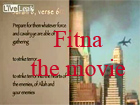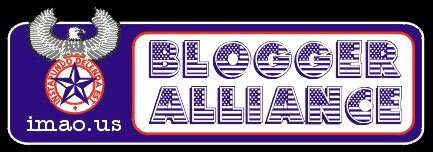« Video Of Chavez Anti-Bush/Anti-US Rant At UN | Main | Pope Benedict Sets Forth a Bold Agenda »
September 20, 2006
Bernard Lewis: 'Bring Them Freedom, Or They Destroy Us'
Bernard Lewis has a piece at Real Clear Politics today that is adapted from a lecture delivered by him on July 16, 2006, on board the Crystal Serenity, during a Hillsdale College cruise in the British Isles. To say that it is an important read, is an understatement. The danger the West faces from the Islamic world, is large and growing, and the sooner we understand the problems and the threats involved, the more likely we are to survive as a civilization, as are our freedoms.
... By common consent among historians, the modern history of the Middle East begins in the year 1798, when the French Revolution arrived in Egypt in the form of a small expeditionary force led by a young general called Napoleon Bonaparte--who conquered and then ruled it for a while with appalling ease. General Bonaparte--he wasn't yet Emperor--proclaimed to the Egyptians that he had come to them on behalf of a French Republic built on the principles of liberty and equality. We know something about the reactions to this proclamation from the extensive literature of the Middle Eastern Arab world. The idea of equality posed no great problem. Equality is very basic in Islamic belief: All true believers are equal. Of course, that still leaves three "inferior" categories of people--slaves, unbelievers and women. But in general, the concept of equality was understood. Islam never developed anything like the caste system of India to the east or the privileged aristocracies of Christian Europe to the west. Equality was something they knew, respected, and in large measure practiced. But liberty was something else.As Dean's World says, this is possibly the most important, informative, and relevant article on the Mideast by anyone since 9/11, and the excerpts don't really do the essay justice. If you read only one article on the Mideast in your lifetime, make it this one.... As used in Arabic at that time, liberty was not a political but a legal term: You were free if you were not a slave. The word liberty was not used as we use it in the Western world, as a metaphor for good government. So the idea of a republic founded on principles of freedom caused some puzzlement. Some years later an Egyptian sheikh--Sheikh Rifa'a Rafi' al-Tahtawi, who went to Paris as chaplain to the first group of Egyptian students sent to Europe--wrote a book about his adventures and explained his discovery of the meaning of freedom. He wrote that when the French talk about freedom they mean what Muslims mean when they talk about justice. By equating freedom with justice, he opened a whole new phase in the political and public discourse of the Arab world, and then, more broadly, the Islamic world.
Is Western-Style Freedom Transferable?
What is the possibility of freedom in the Islamic world, in the Western sense of the word? If you look at the current literature, you will find two views common in the United States and Europe. One of them holds that Islamic peoples are incapable of decent, civilized government. Whatever the West does, Muslims will be ruled by corrupt tyrants. Therefore the aim of our foreign policy should be to insure that they are our tyrants rather than someone else's--friendly rather than hostile tyrants. This point of view is very much favored in departments of state and foreign offices and is generally known, rather surprisingly, as the "pro-Arab" view. It is, of course, in no sense pro-Arab. It shows ignorance of the Arab past, contempt for the Arab present, and unconcern for the Arab future. The second common view is that Arab ways are different from our ways. They must be allowed to develop in accordance with their cultural principles, but it is possible for them--as for anyone else, anywhere in the world, with discreet help from outside and most specifically from the United States--to develop democratic institutions of a kind. This view is known as the "imperialist" view and has been vigorously denounced and condemned as such.
In thinking about these two views, it is helpful to step back and consider what Arab and Islamic society was like once and how it has been transformed in the modern age.
... I think that the cause of developing free institutions--along their lines, not ours--is possible. One can see signs of its beginning in some countries. At the same time, the forces working against it are very powerful and well entrenched. And one of the greatest dangers is that on their side, they are firm and convinced and resolute. Whereas on our side, we are weak and undecided and irresolute. And in such a combat, it is not difficult to see which side will prevail.
... As Osama bin Laden puts it: "In this final phase of the ongoing struggle, the world of the infidels was divided between two superpowers--the United States and the Soviet Union. Now we have defeated and destroyed the more difficult and the more dangerous of the two. Dealing with the pampered and effeminate Americans will be easy." [...] What happened on 9/11 was seen by its perpetrators and sponsors as the culmination of the previous phase and the inauguration of the next phase--taking the war into the enemy camp to achieve final victory. The response to 9/11 came as a nasty surprise. They were expecting more of the same--bleating and apologies--instead of which they got a vigorous reaction, first in Afghanistan and then in Iraq.
... I think that the effort is difficult and the outcome uncertain, but I think the effort must be made. Either we bring them freedom, or they destroy us.
With these thoughts in mind, you really do need to go read everything in between the above excerpts - your freedom and safety may depend upon it.
Related: "'Faith, Reason & The University': Pope Benedict's Speech At The University of Regensburg"
Hat tip - Memeorandum
Cross posted from Hyscience
Posted by Richard at September 20, 2006 3:28 PM


